Arts & Entertainment
Drag Isn’t Dangerous Telethon raises over $523,000
Final amount raised from the live broadcast was over $523,000. Recording of it will stay online for 48 hours after its conclusion
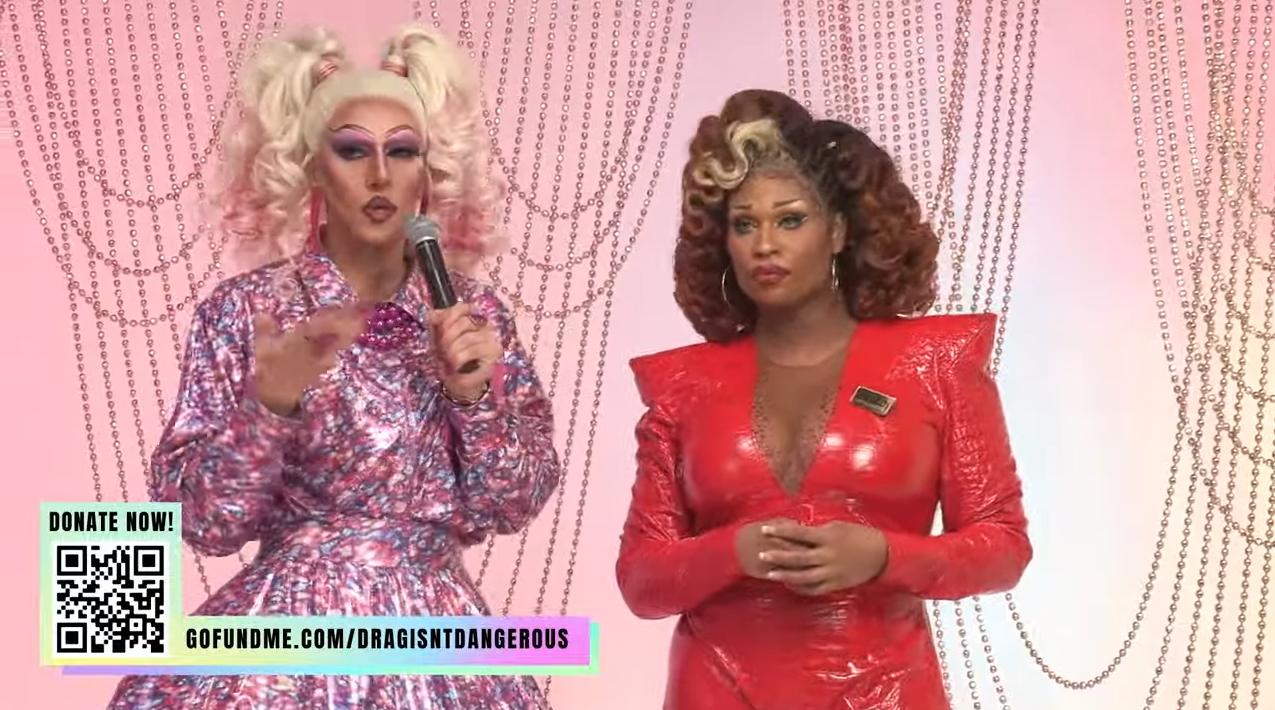
Into the third hour of Drag Isn’t Dangerous, a brief film makes the point that there have been article after article about children molested by church clergy and counselors, yet not a single bill has been proposed tackling that real issue. Then there are drag queens. Drag queens have never harmed a child, and there are no articles implying that they have. Yet … yet … state after state, bill after bill are going after drag queens.
With this telethon event, drag queens and all that they have inspired, have sent the message: They are not going to take this shit anymore. Clips of rightwing pundits and commentators were presented and the ignorant hatred expressed in each clip is both at once chilling, and pathetic.
The message of hate is juxtaposed with segments like one featuring “RuPaul Drag Race” alum Nina West. West told the story about her adventures doing storybook hours at Columbus, Ohio, libraries for children. It should be pointed out that the Nina West brand is one of classiness and kindness. She moved her popular book readings onto Instagram. The first hour where she did so was wonderful.
The second hour was not.
The audience turned “dark, terrifying and threatening.” Then it all got very personal. People showed up at his house where he was broadcasting and blew eardrum breaking airhorns outside his windows. They then started a campaign of harassment and doxing, targeting him, his parents and his sister. Signs appeared in his yard accusing him of being a groomer.
Last December he embarked on a Drag Christmas tour. The tour encountered protesters, bomb threats and required police escorts.
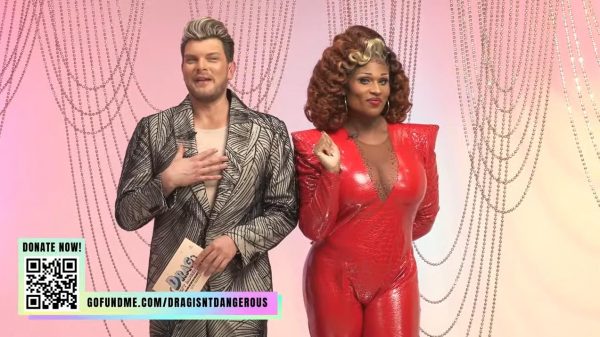
Hosted by Justin Martindale and Peppermint with a co-location hosted by Alaska and Adam Shankman, the telethon team declared a goal target of $250,000 for the evening. The evening was filled with performances from some of the Drag community’s best. Kicking off the evening were songs by Trixie Mattel and Alaska. The online crowd was gobsmacked with exclamations like “legends!” , “fierce!” “That voice!”.
The telethon was a recreation of the traditional telethon style with a phonebank of drag celebrities womaning the phones. Instead of the phone banks of years gone by the receptionists were not the first point of entry to make donations. In this modern version, donors first register their donation on the gofundme application and then are connected to the celebrity to receive thanks and conversation. Phone bank stars included Candis Cayne, Jinx Monsson, Ginger Minge, Laganja Estranja Trinity the Tuck, Monet Exchange and Queer Eye OG Jai Rodriguez.
As of 4:30 p.m., $55,000 had been raised.
Celebrity cameos and interviews were generously sprinkled through the broadcast. Many of them expressed gratitude and awe for the talents and artistic contributions of drag. Still others were downright angry. “I will f*ck anyone who messes with you,” Charlize Theron declared.
“Drag isn’t dangerous, but Leslie Jones IS!” Leslie Jones fumed.
Sarah Silverman also did not mince words. “It is an invented ‘problem’. It creates a REAL problem for the marginalized. I would trust RuPaul before any of you (Republican) hate mongers.” To the drag community, she declared, “If they come for you, they will have to come through me first.”
“Lawmakers are terrified of how bright we are shining,” Adam Lambert stated affirmingly.

As of 4:50 p.m. $100,000 had been raised.
Donors were interviewed through the phonebank. Jai Rodriguez had an impromptu conversation with a young woman who had come out as queer that day. Even though her experience has been “tough”, she wanted to celebrate her landmark day by donating.
Michele Visage gave RuPaul visibility and spoke from her heart. “I wish I could say that I am glad to be here,” she started. “I am appalled I have to be at something called ‘Drag Isn’t Dangerous.’ Imagine a world where dancers are told they can’t dance; imagine a world where artists are told they cannot take paint to canvas…because it is ‘bad for children.’ That is what is happening to drag right now.”
As of 5:40 p.m., $205,000 had been raised. Jinx Monsson whipped out her own checkbook and wrote a check for $10,000.
Other celebrities added perspective to the issue. Ocean Kelly stated, “They want us to stay quiet. Watching a drag queen won’t make a child queer. If a child is queer, it is because they are … queer.”
Billy Eichner discussed the historical use of scapegoats as distractions. “It is not new, but it is urgent and dangerous,” he warned. “We need to be relentless and loud,” he instructed.
Oscar winner Marcia Gay Harden demonstrated her queer chops by publicly outing her entire family. “All my children are queer,” she declared. “One is nonbinary, one is gay. My first boyfriend was gay and my conservative Naval Officer dad loved him. “ Of the drag controversy she said, “Why are we having to advocate for creativity and imagination? It is so fear-based. We know what love is.”
As of 7:38 p.m., half a million dollars had been raised.
The movement has started and this first outing is not yet over. Recording of it will stay online for 48 hours after it concludes.
Go here for tickets and then receive you email with the telethon link: https://www.moment.co/dangerous/dragisntdangerous-drag-isnt-dangerous-live
As for the end of the Telethon, Ginger Minge show stopped with the classic “I Am What I Am” from La Cage.
I don’t want praise I don’t want pity
I bang my own drum
Some think it’s noise I think it’s pretty
And so what if I love each sparkle and each bangle
Why not try to see things from a different angle
Your life is a sham til you can shout out
I am what I amI am what I am
And what I am needs no excuses
I deal my own deck
Sometimes the ace sometimes the deuces
It’s my life that I want to have a little pride in
My life and it’s not a place I have to hide in
Life’s not worth a danm til you can shout out
I am what I am
********************************************************************

Rob Watson is the host of the popular Hollywood-based radio/podcast show RATED LGBT RADIO.
He is an established LGBTQ columnist and blogger having written for many top online publications including The Los Angeles Blade, The Washington Blade, Parents Magazine, the Huffington Post, LGBTQ Nation, Gay Star News, the New Civil Rights Movement, and more.
He served as Executive Editor for The Good Man Project, has appeared on MSNBC and been quoted in Business Week and Forbes Magazine.
He is CEO of Watson Writes, a marketing communications agency, and can be reached at [email protected] .
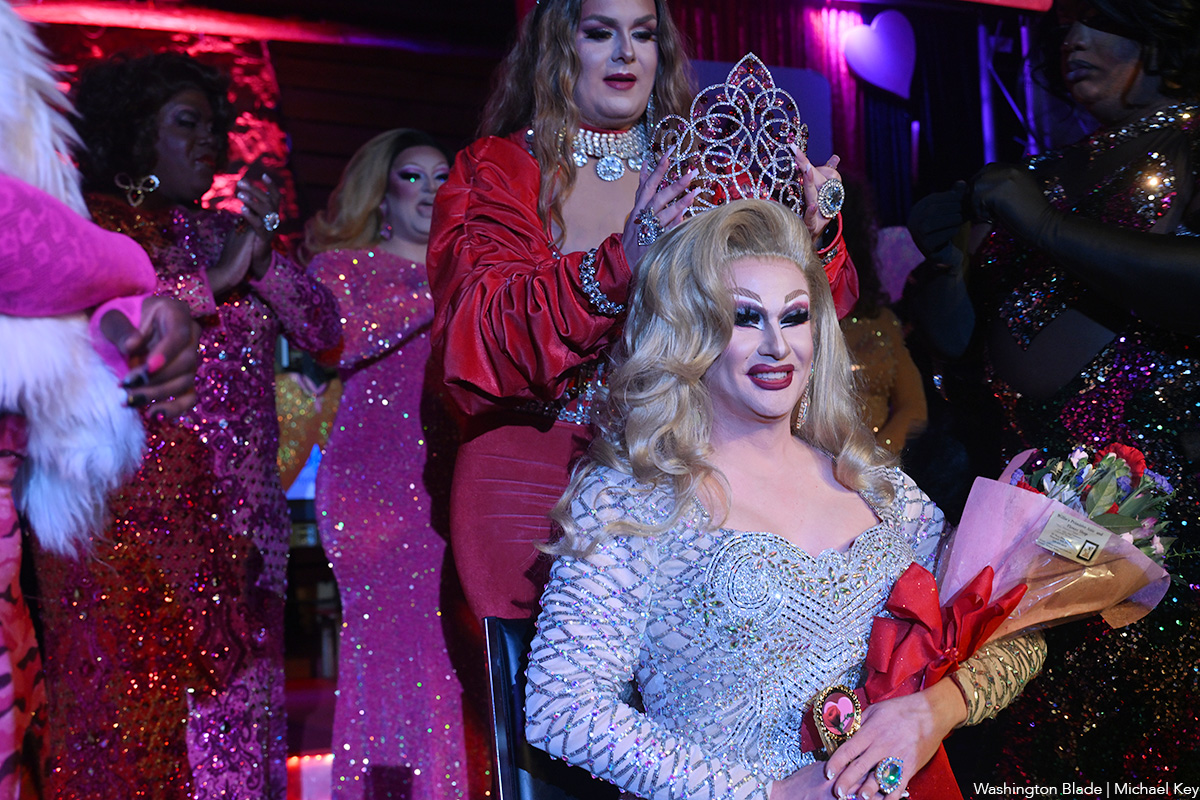
The 44th annual Queen of Hearts pageant was held at The Lodge in Boonsboro, Md. on Friday, Feb. 20. Six contestants vied for the title and Bev was crowned the winner.
(Washington Blade photos by Michael Key)
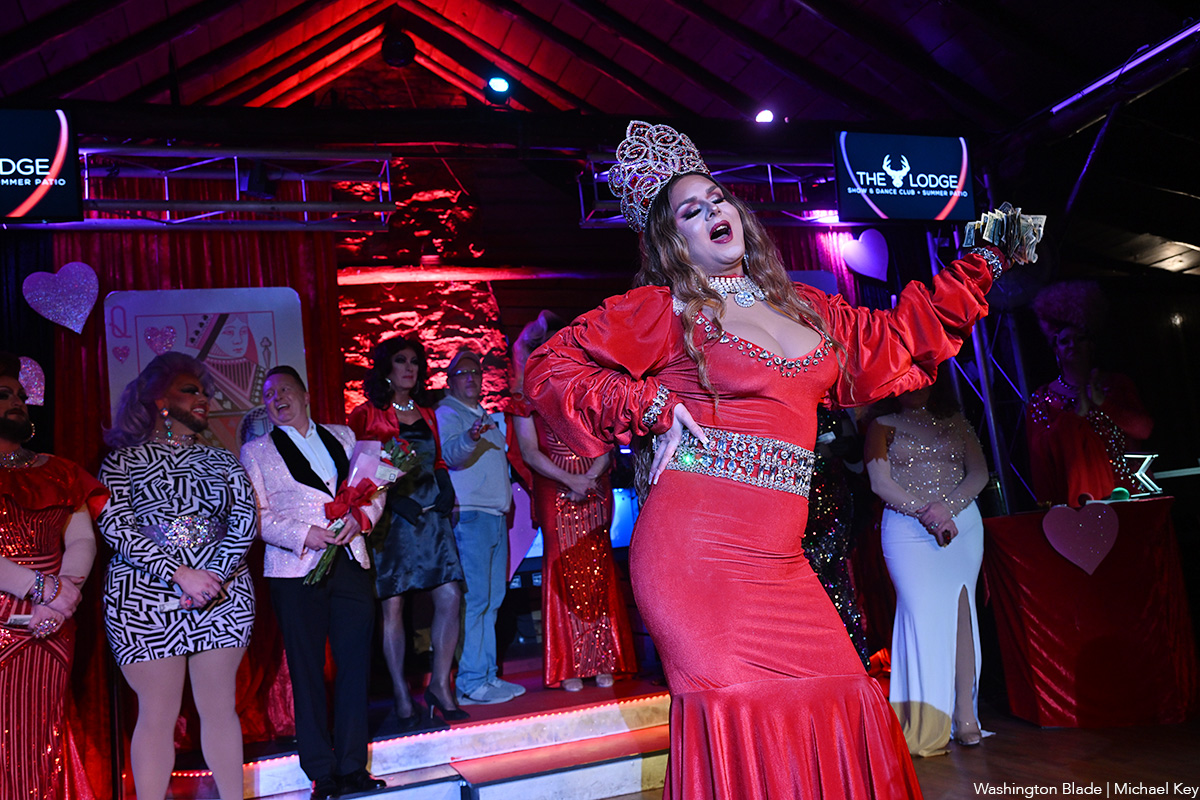
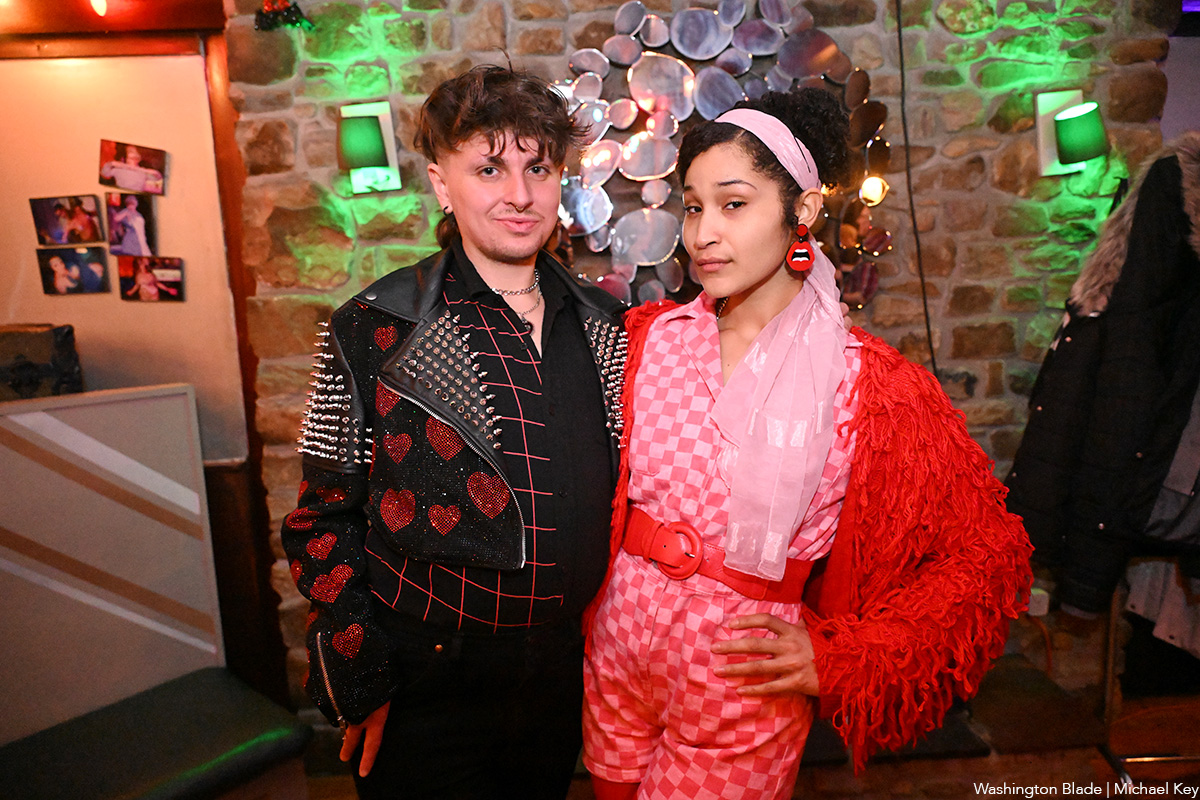
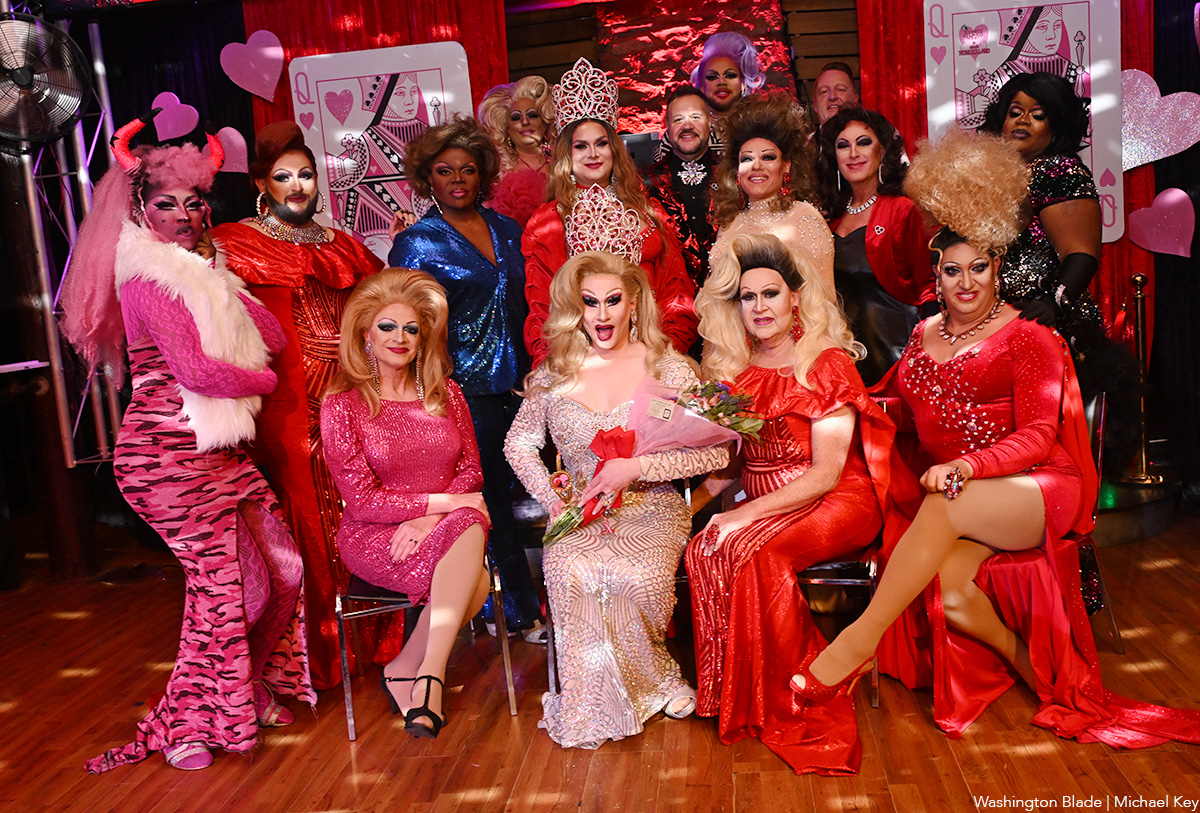
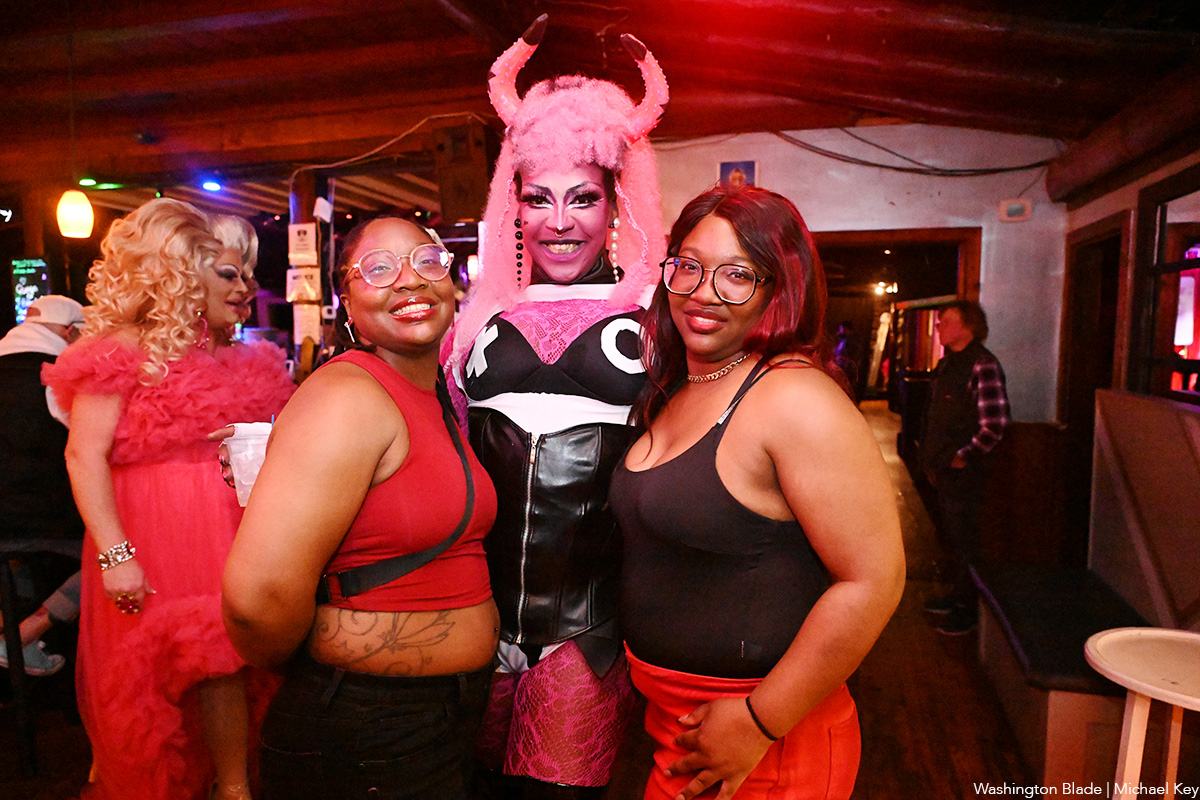
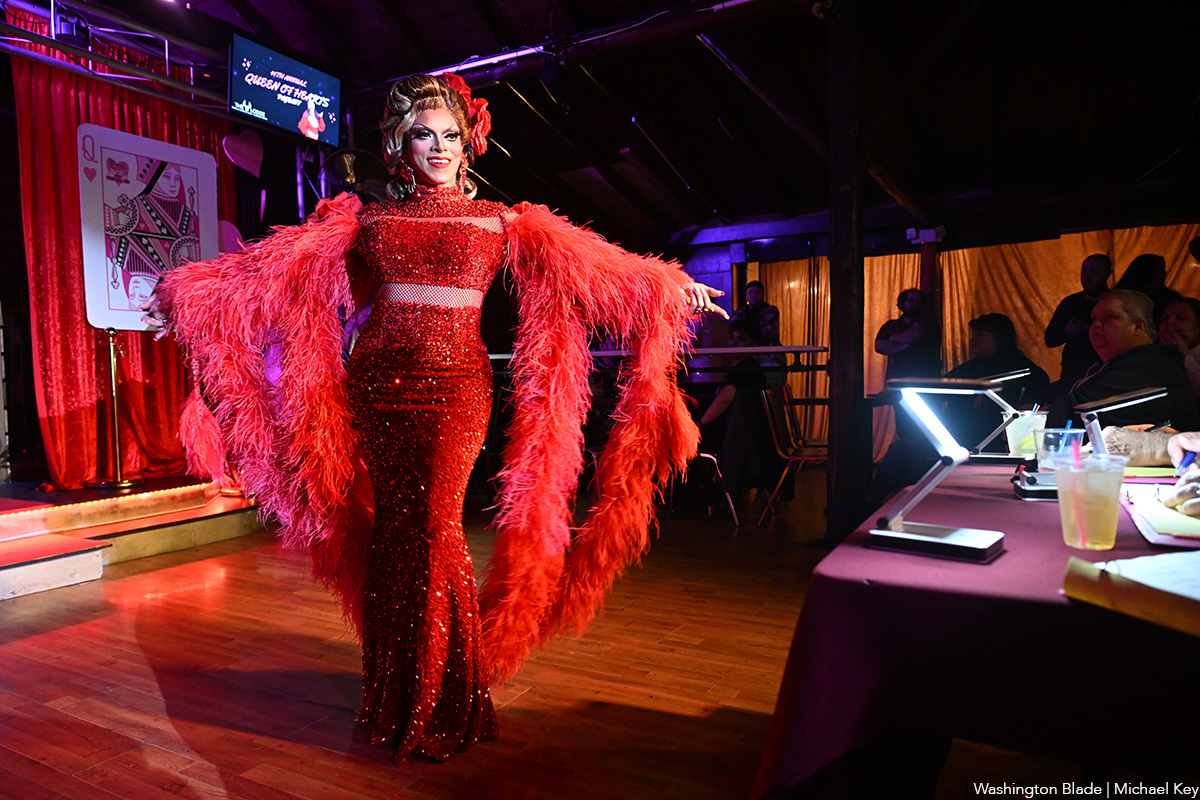
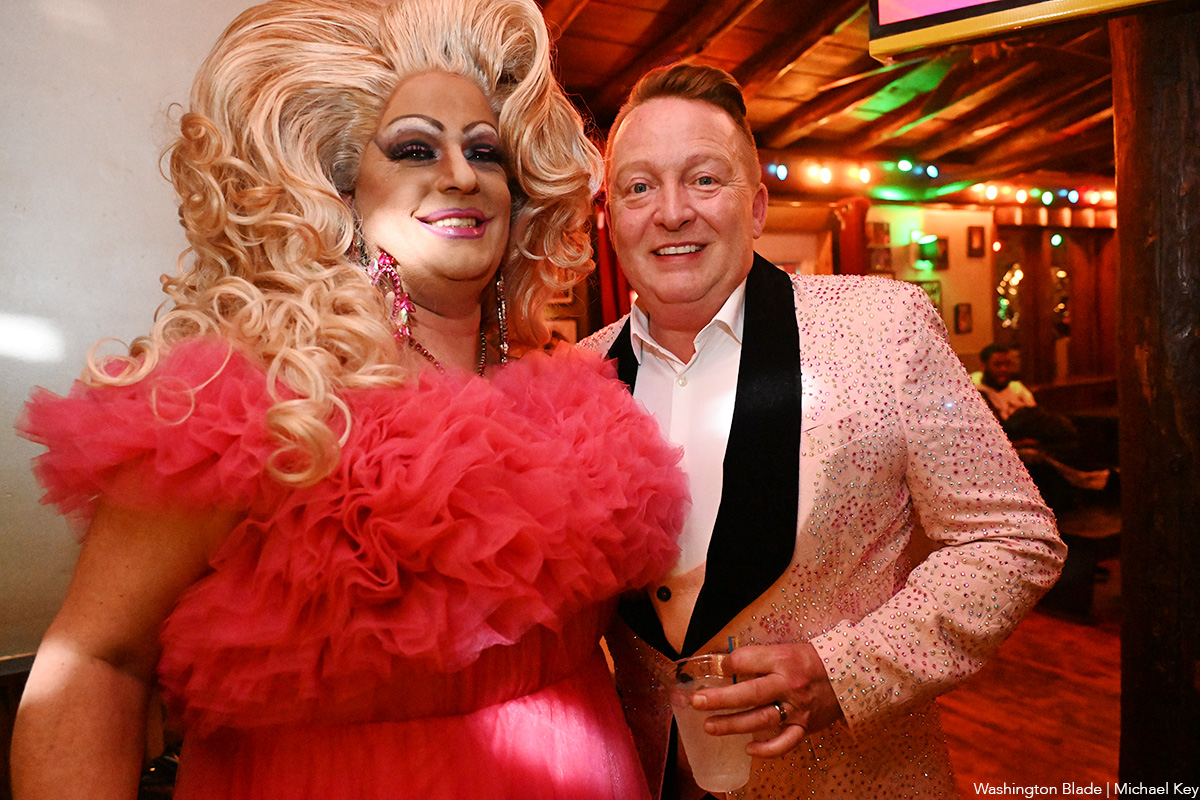
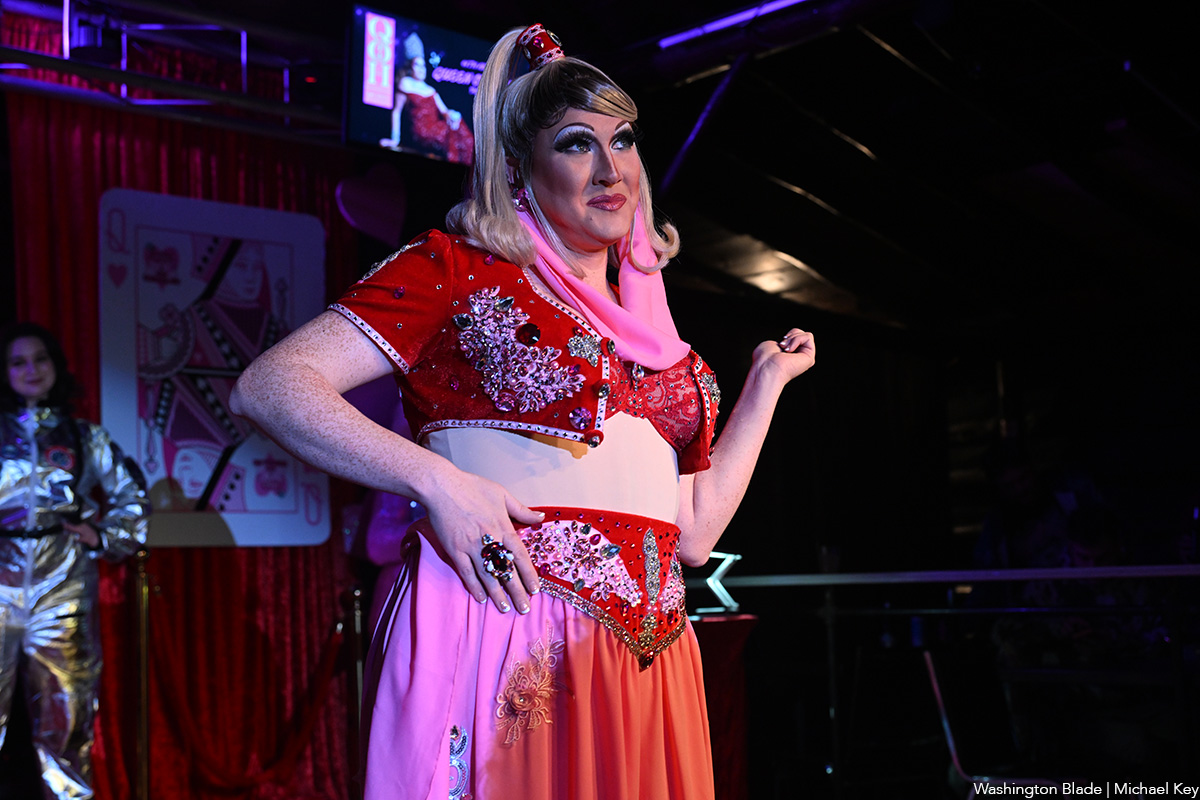

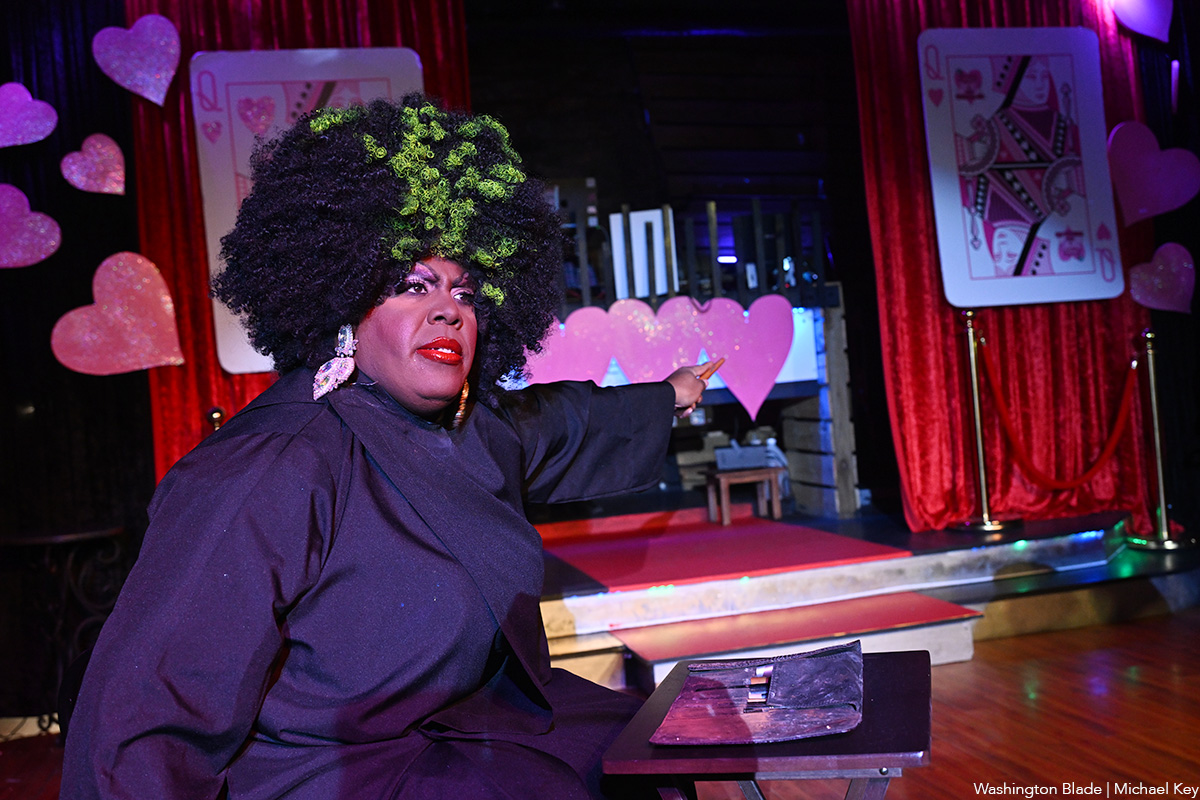
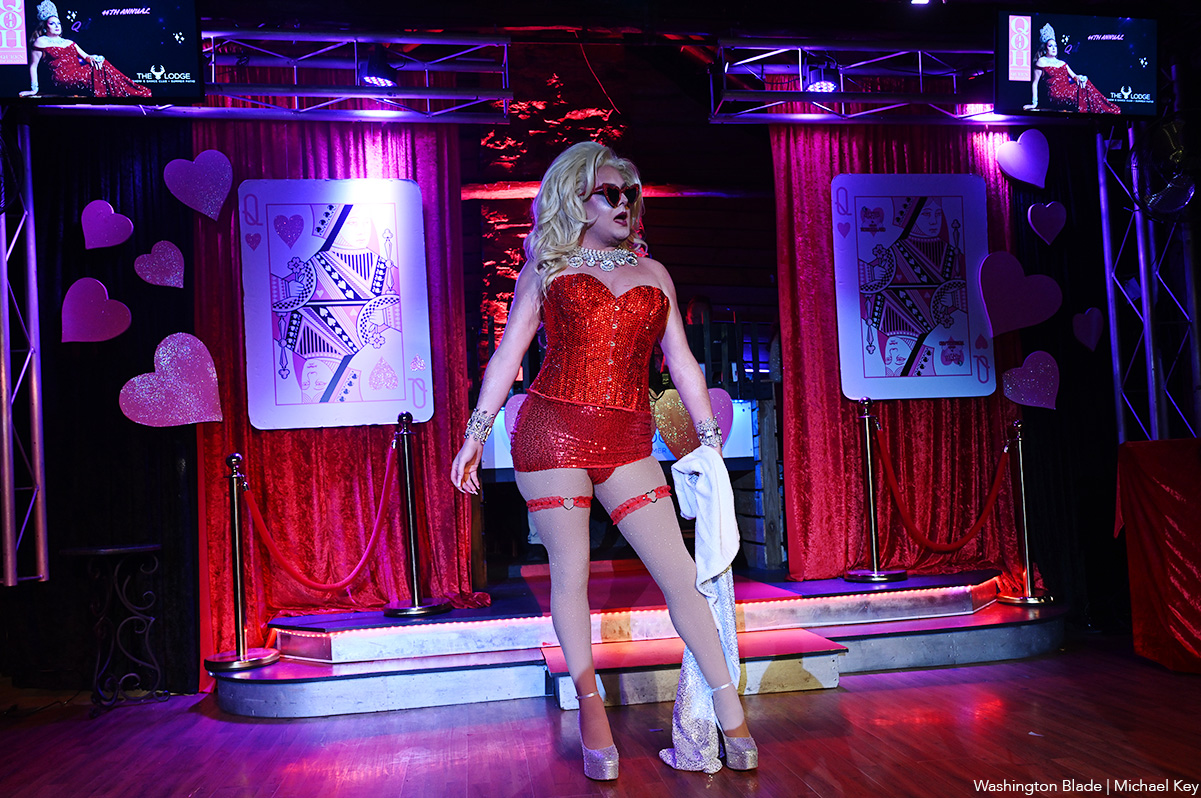
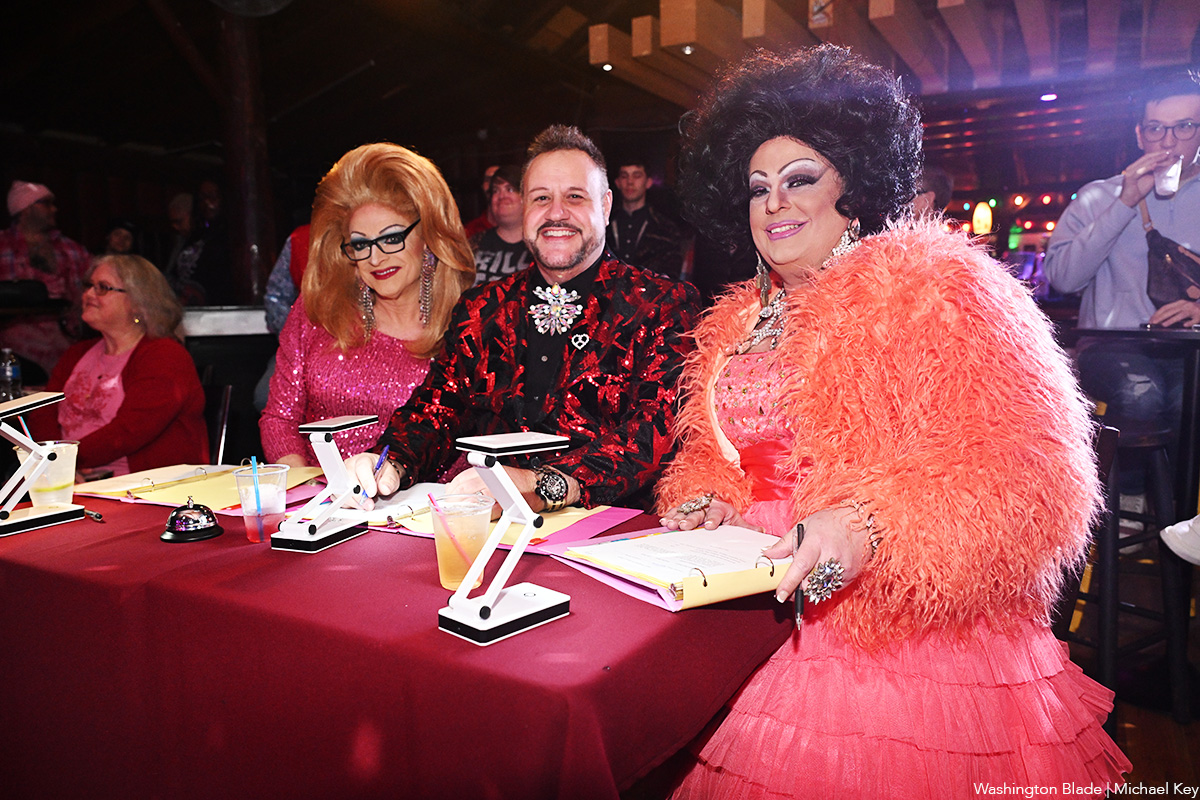
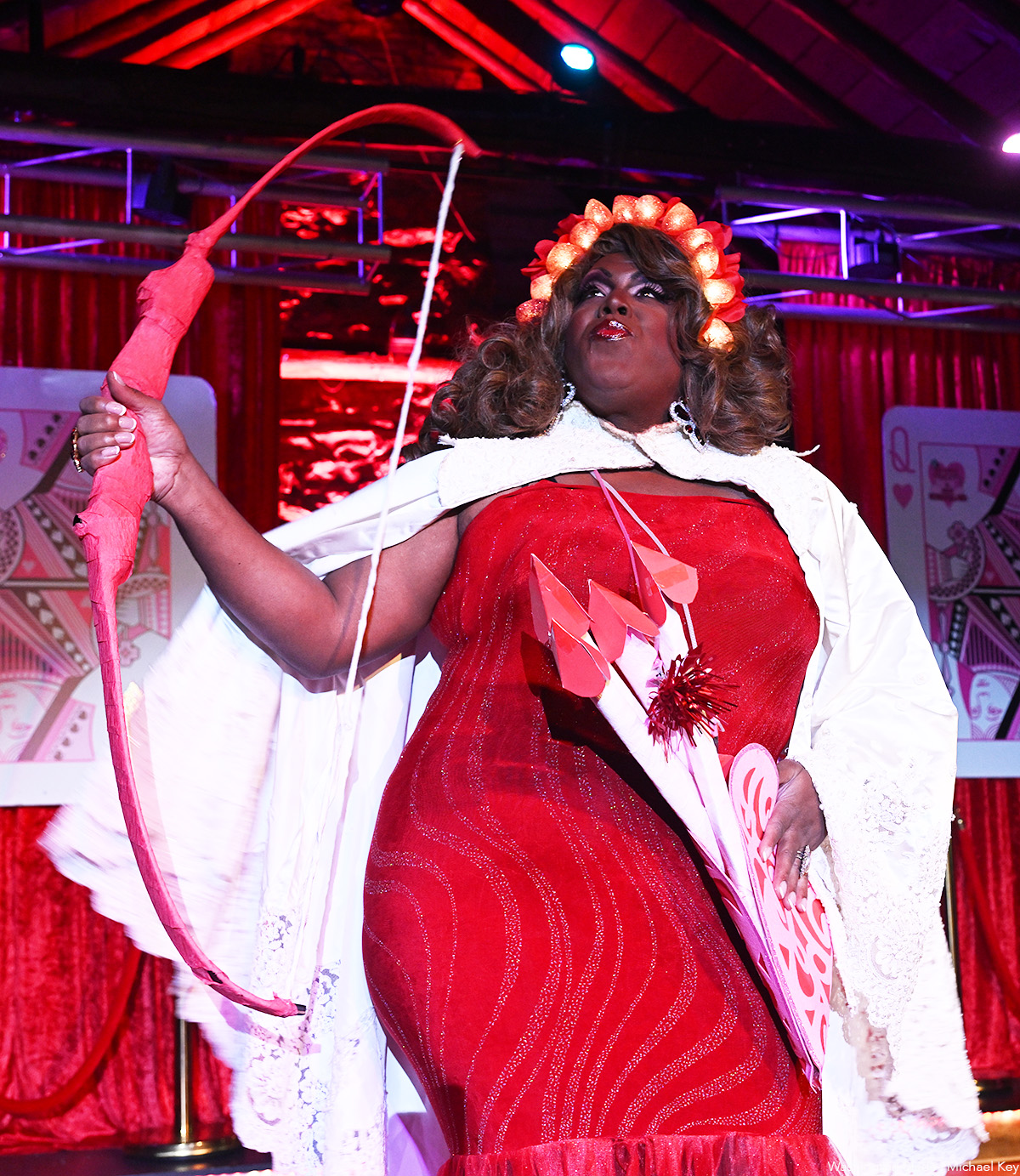
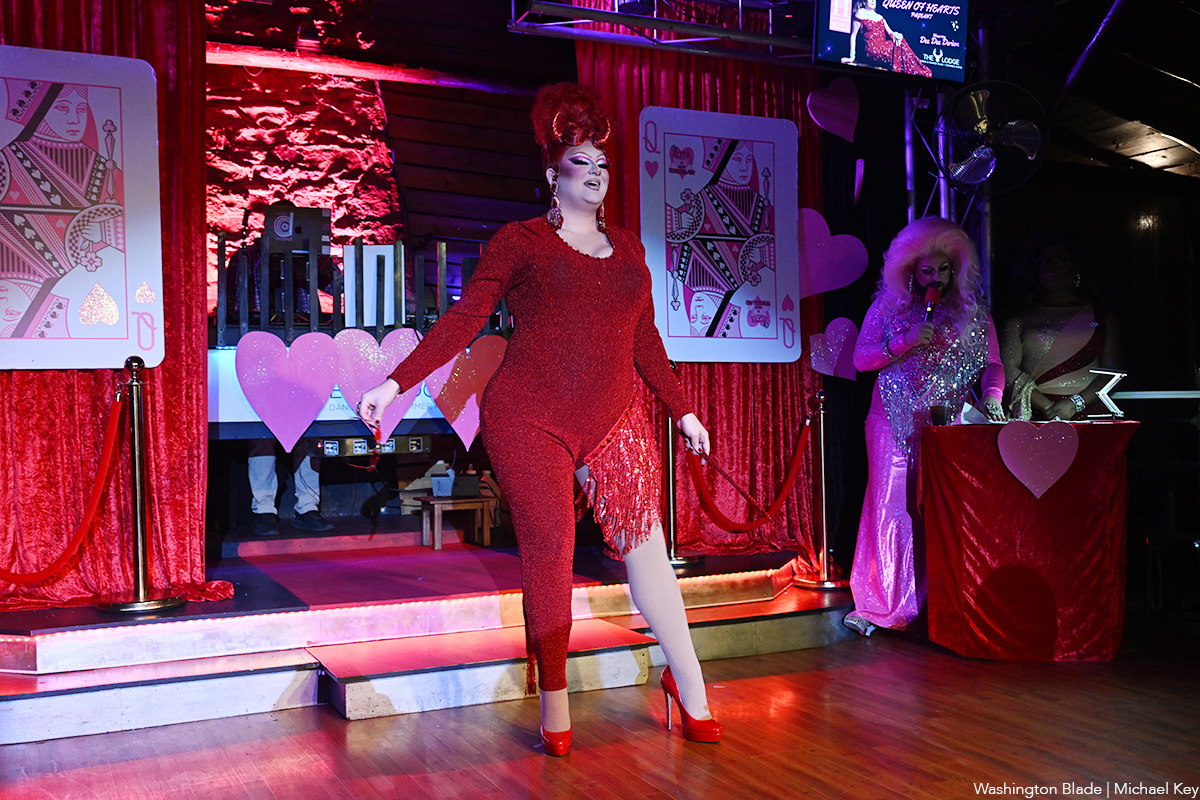
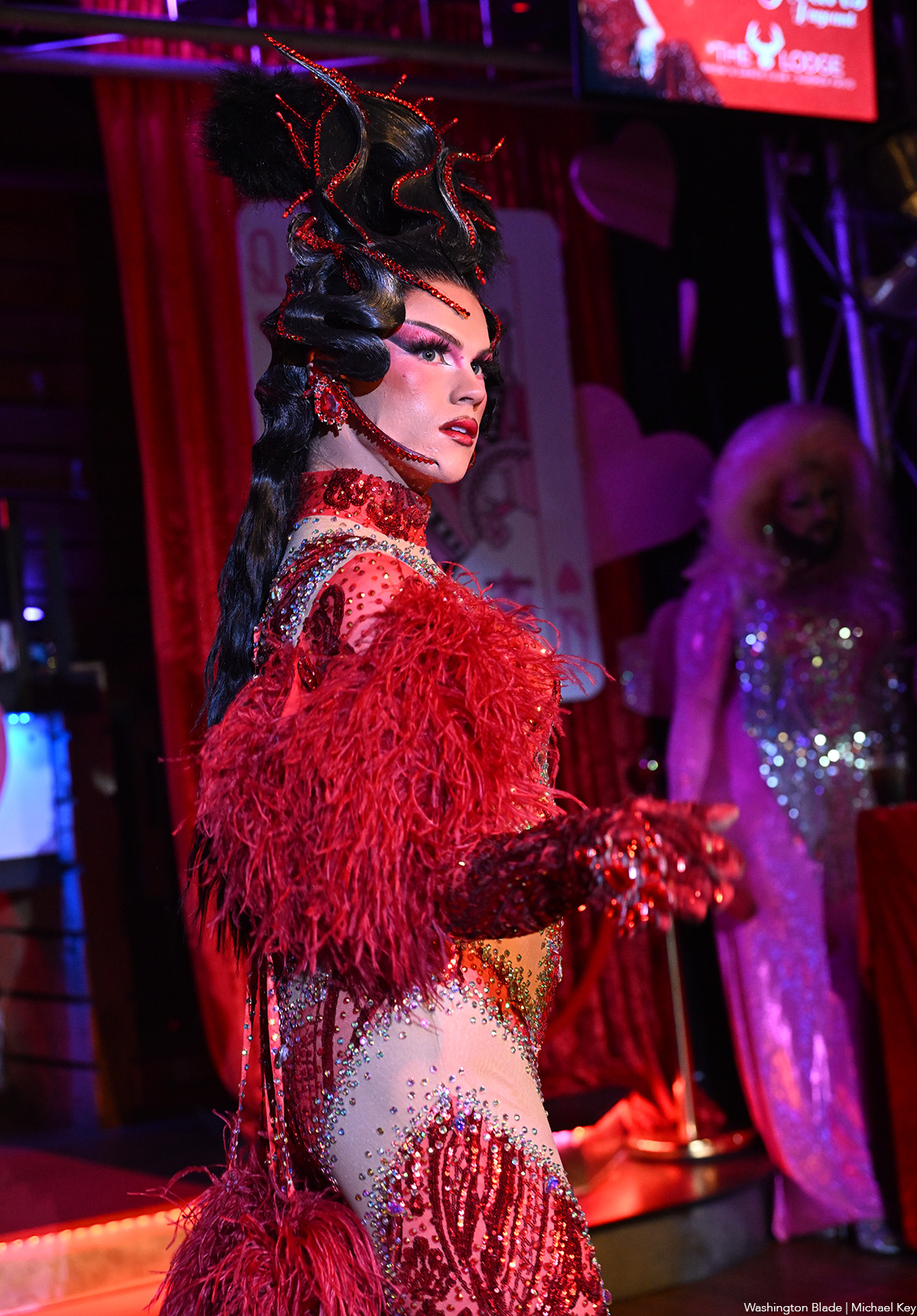
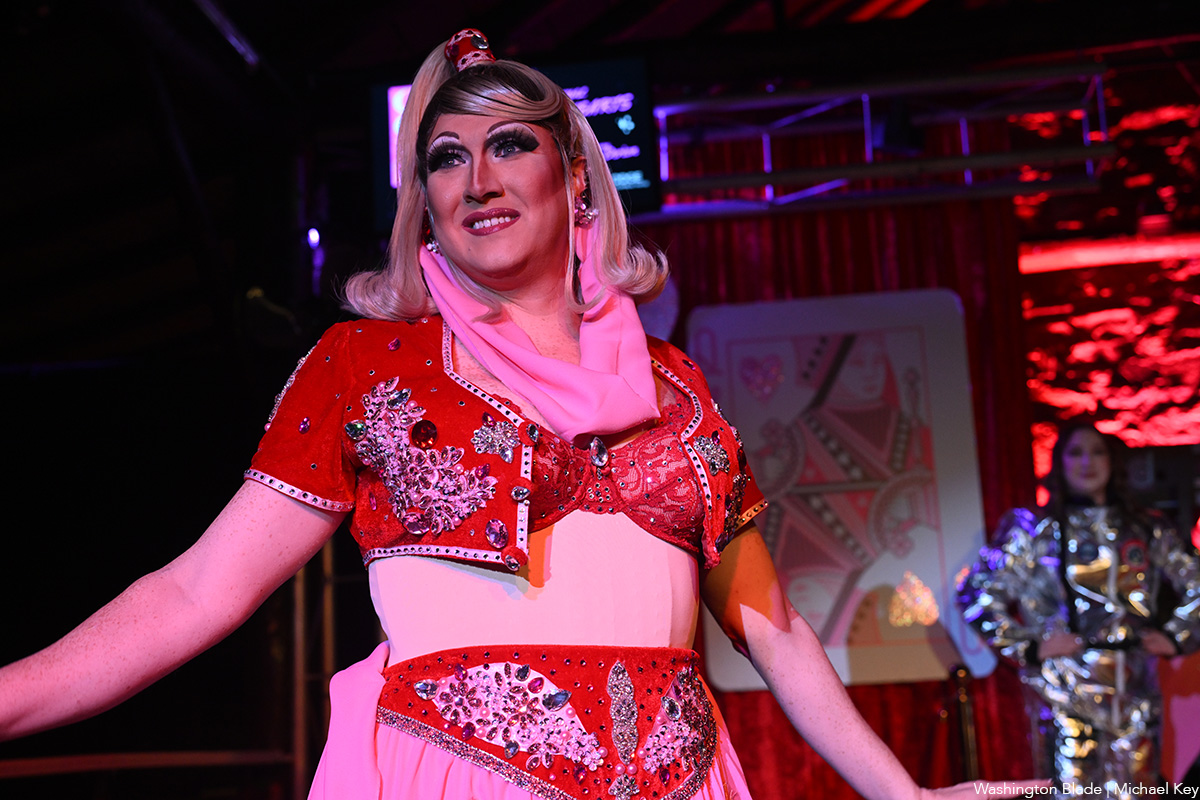
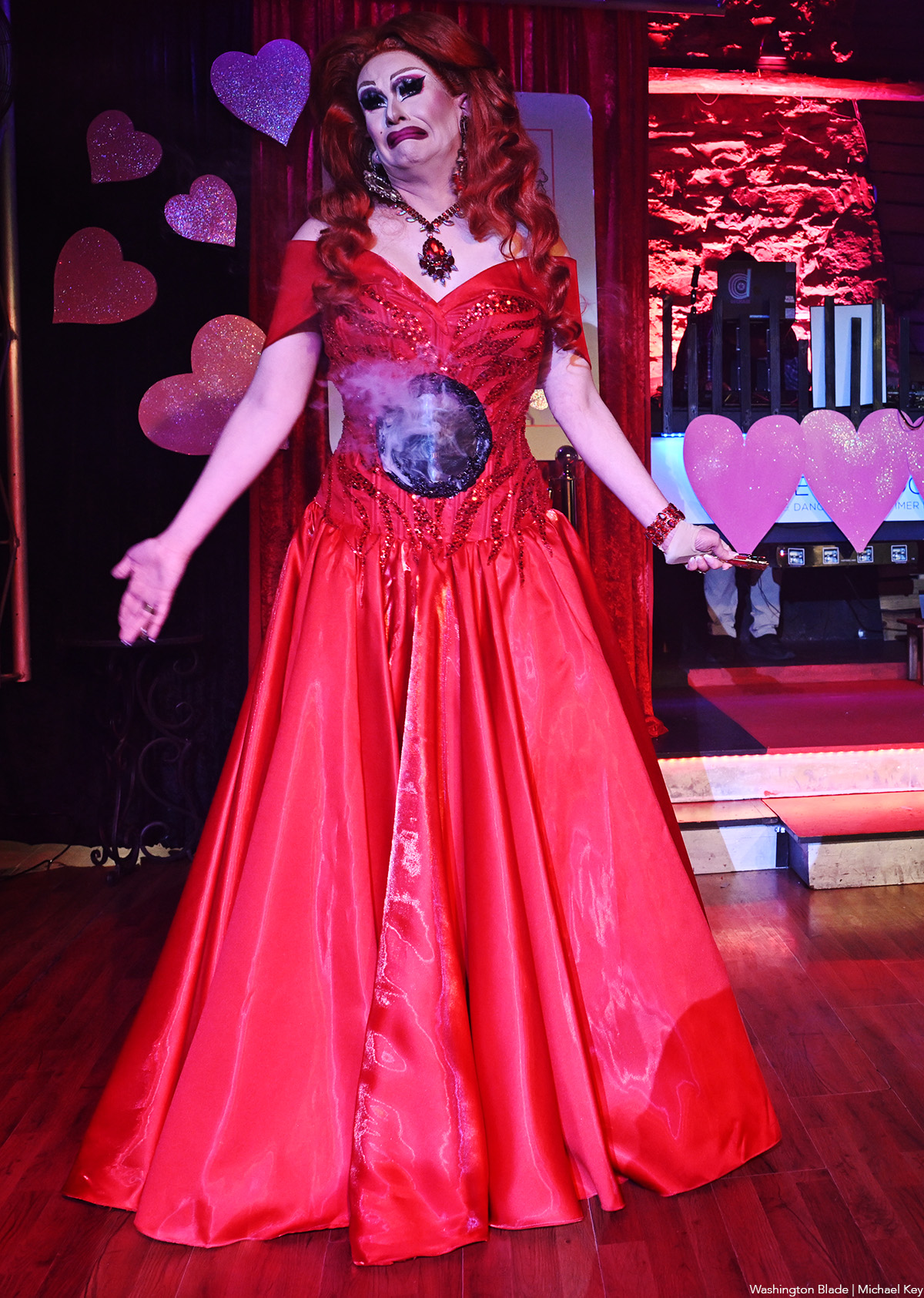
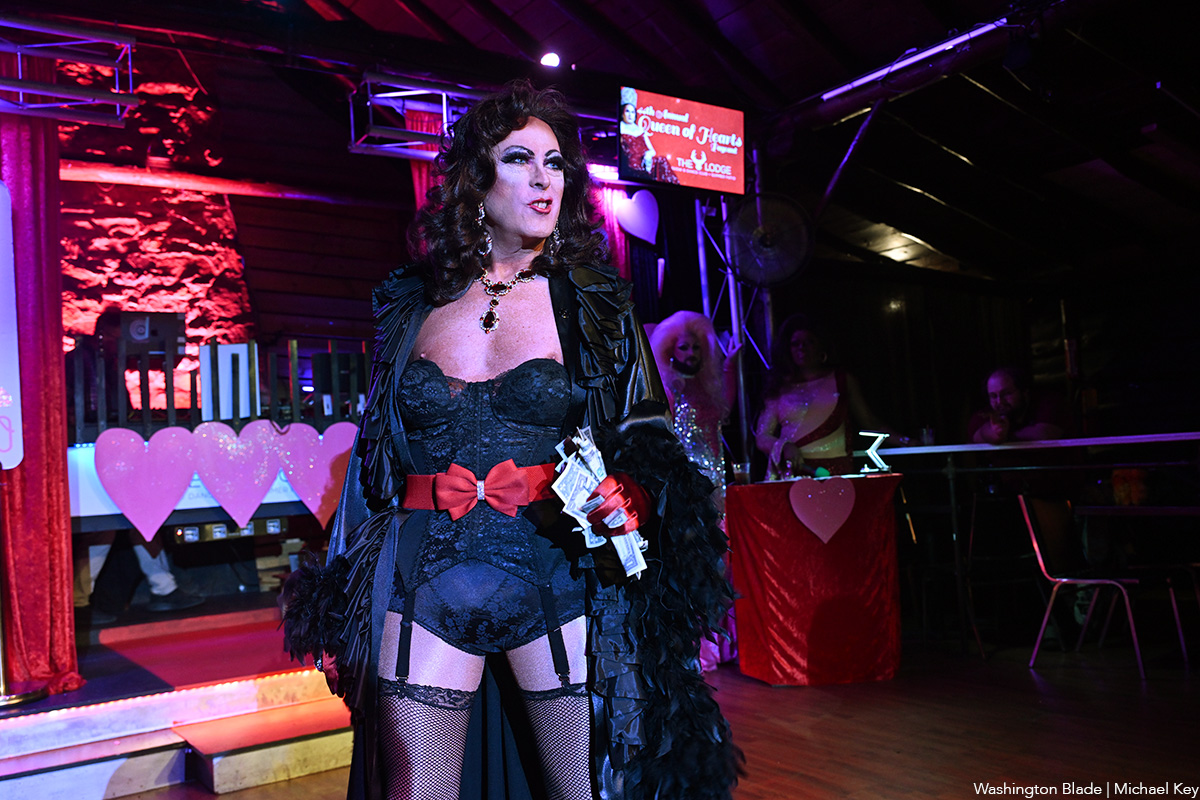
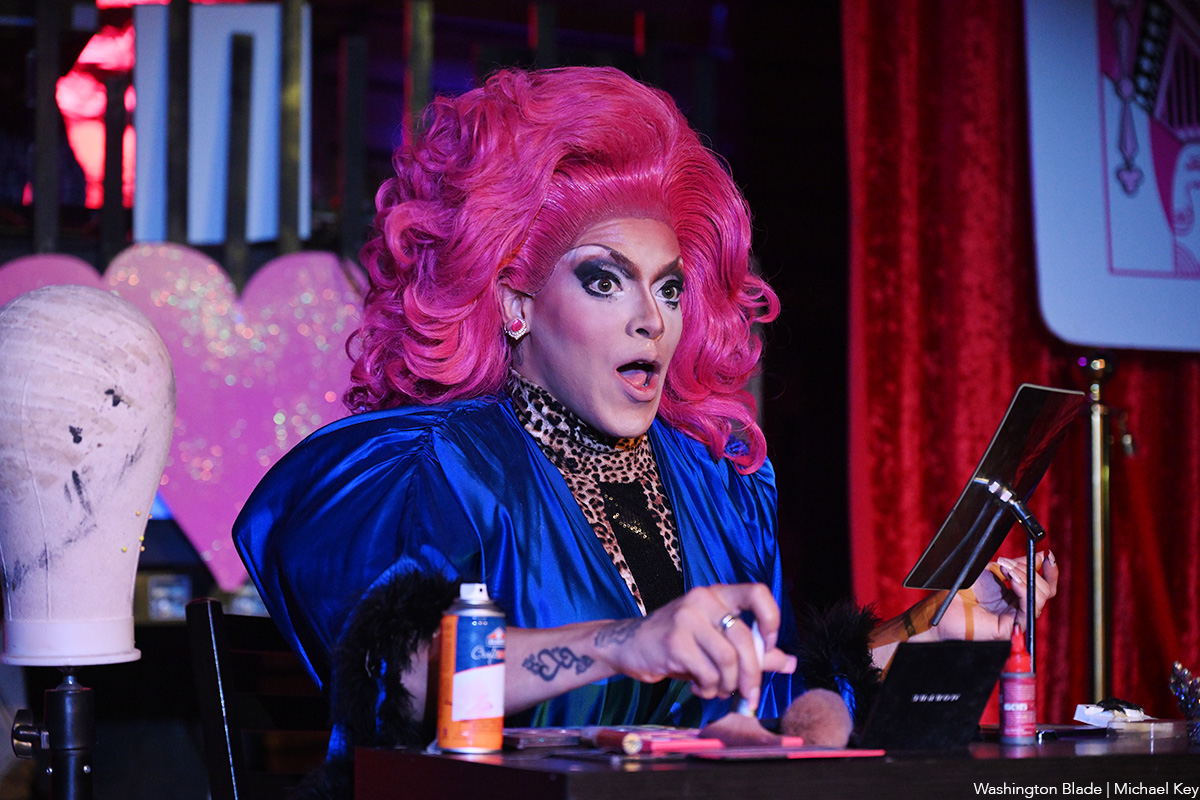
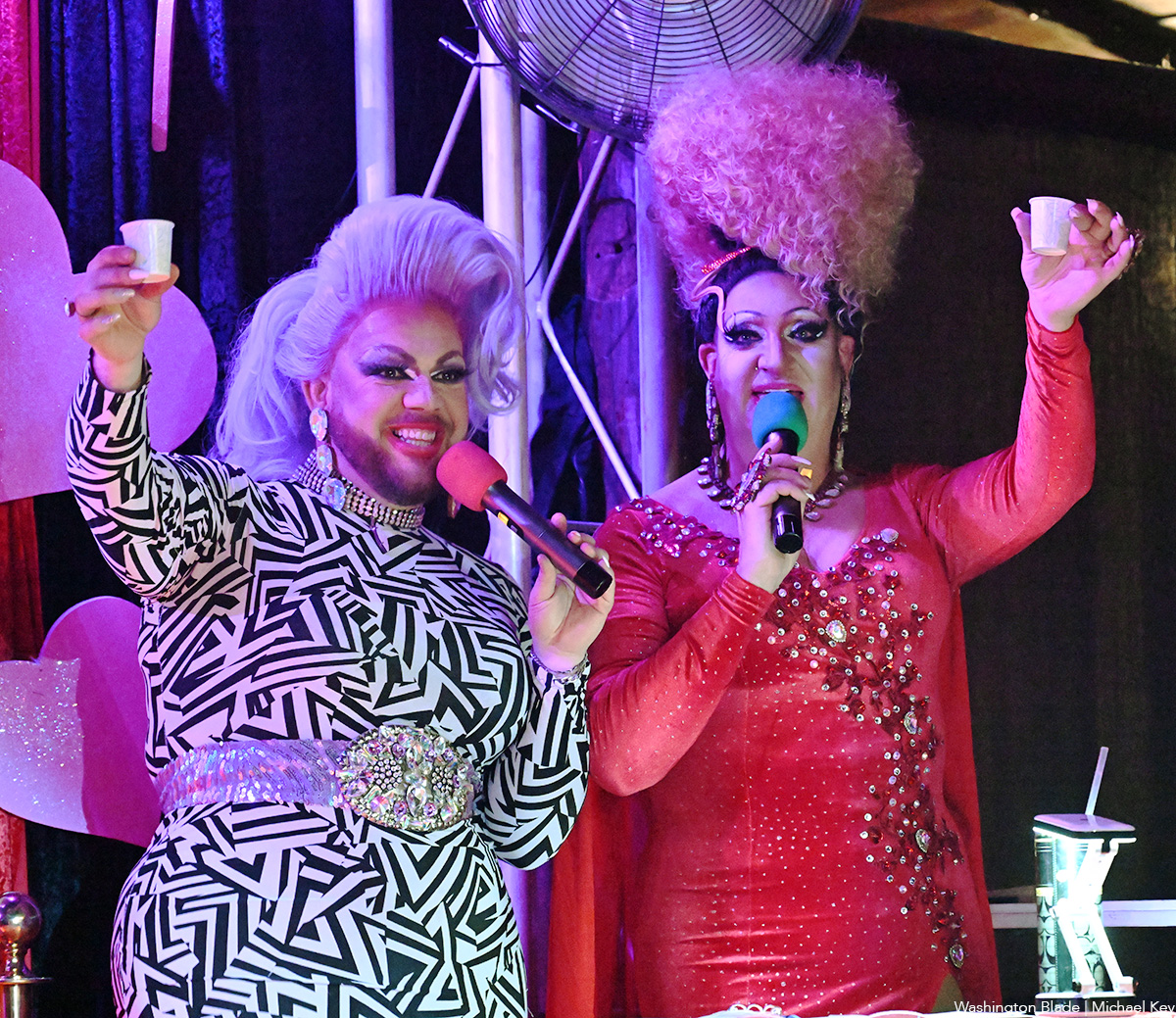

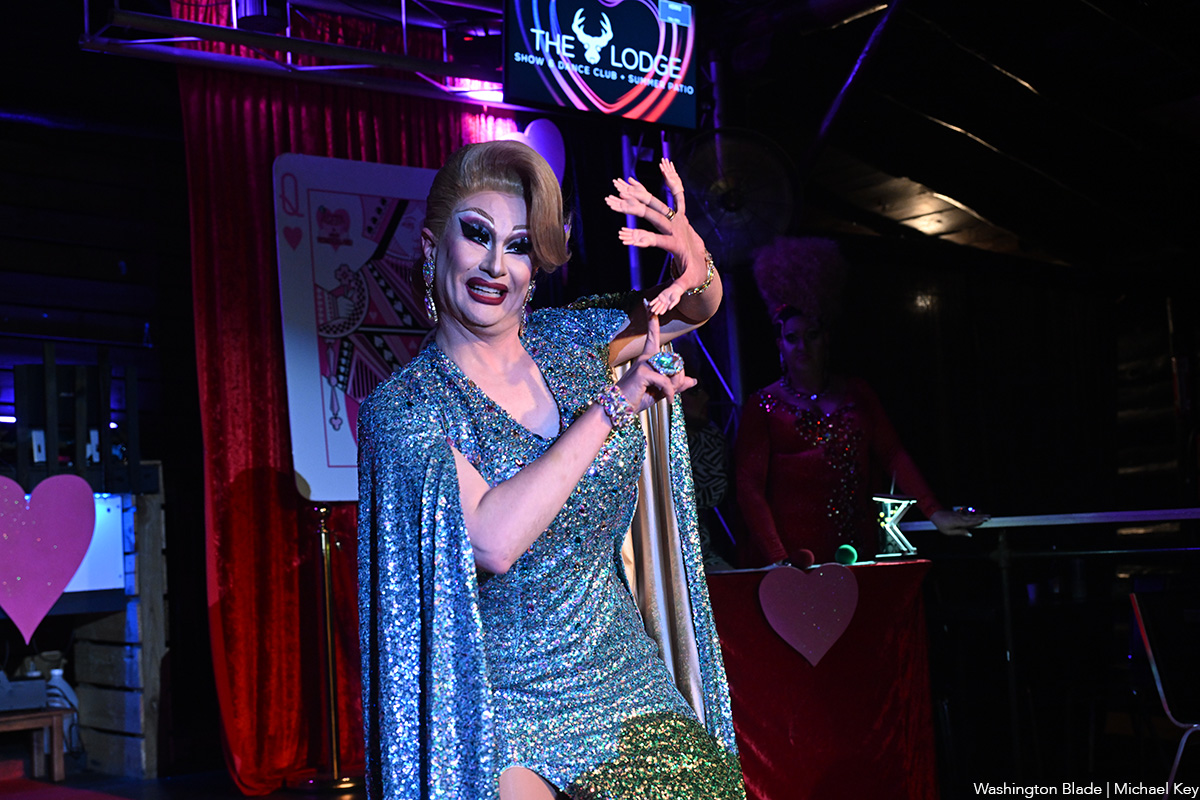
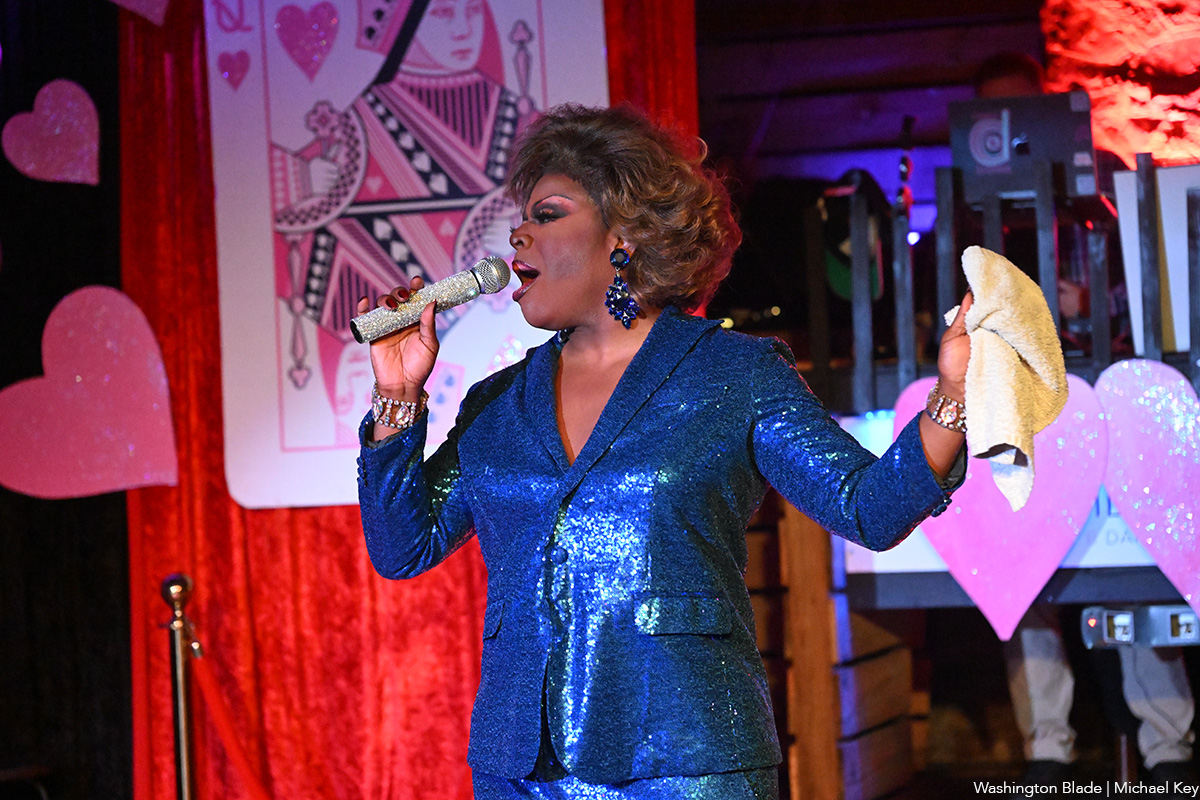
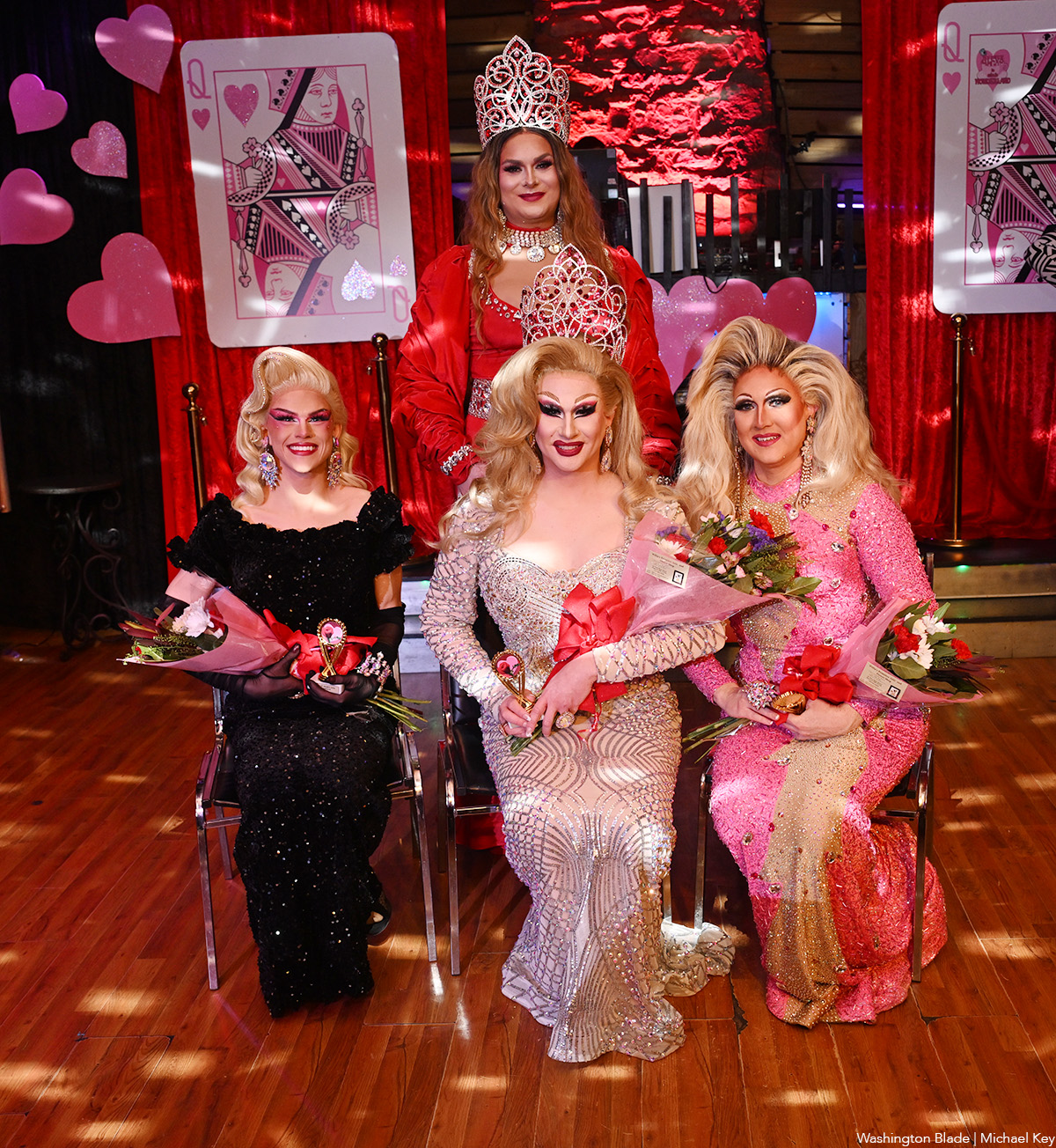
View on Threads
Books
New book profiles LGBTQ Ukrainians, documents war experiences
Tuesday marks four years since Russia attacked Ukraine

Journalist J. Lester Feder’s new book profiles LGBTQ Ukrainians and their experiences during Russia’s war against their country.
Feder for “The Queer Face of War: Portraits and Stories from Ukraine” interviewed and photographed LGBTQ Ukrainians in Kyiv, the country’s capital, and in other cities. They include Olena Hloba, the co-founder of Tergo, a support group for parents and friends of LGBTQ Ukrainians, who fled her home in the Kyiv suburb of Bucha shortly after Russia launched its war on Feb. 24, 2022.
Russian soldiers killed civilians as they withdrew from Bucha. Videos and photographs that emerged from the Kyiv suburb showed dead bodies with their hands tied behind their back and other signs of torture.

Olena Shevchenko, chair of Insight, a Ukrainian LGBTQ rights group, wrote the book’s forward.

The book also profiles Viktor Pylypenko, a gay man who the Ukrainian military assigned to the 72nd Mechanized Black Cossack Brigade after the war began. Feder writes Pylypenko’s unit “was deployed to some of the fiercest and most important battles of the war.”
“The brigade was pivotal to beating Russian forces back from Kyiv in their initial attempt to take the capital, helping them liberate territory near Kharkiv and defending the front lines in Donbas,” wrote Feder.
Pylypenko spent two years fighting “on Ukraine’s most dangerous battlefields, serving primarily as a medic.”
“At times he felt he was living in a horror movie, watching tank shells tear his fellow soldiers apart before his eyes,” wrote Feder. “He held many men as they took their final breaths. Of the roughly one hundred who entered the unit with him, only six remained when he was discharged in 2024. He didn’t leave by choice: he went home to take care of his father, who had suffered a stroke.”
Feder notes one of Pylypenko’s former commanders attacked him online when he came out. Pylypenko said another commander defended him.
Feder also profiled Diana and Oleksii Polukhin, two residents of Kherson, a port city in southern Ukraine that is near the mouth of the Dnieper River.
Ukrainian forces regained control of Kherson in November 2022, nine months after Russia occupied it.
Diana, a cigarette vender, and Polukhin told Feder that Russian forces demanded they disclose the names of other LGBTQ Ukrainians in Kherson. Russian forces also tortured Diana and Polukhin while in their custody.
Polukhim is the first LGBTQ victim of Russian persecution to report their case to Ukrainian prosecutors.

Feder, who is of Ukrainian descent, first visited Ukraine in 2013 when he wrote for BuzzFeed.
He was Outright International’s Senior Fellow for Emergency Research from 2021-2023. Feder last traveled to Ukraine in December 2024.
Feder spoke about his book at Politics and Prose at the Wharf in Southwest D.C. on Feb. 6. The Washington Blade spoke with Feder on Feb. 20.
Feder told the Blade he began to work on the book when he was at Outright International and working with humanitarian groups on how to better serve LGBTQ Ukrainians. Feder said military service requirements, a lack of access to hormone therapy and documents that accurately reflect a person’s gender identity and LGBTQ-friendly shelters are among the myriad challenges that LGBTQ Ukrainians have faced since the war began.
“All of these were components of a queer experience of war that was not well documented, and we had never seen in one place, especially with photos,” he told the Blade. “I felt really called to do that, not only because of what was happening in Ukraine, but also as a way to bring to the surface issues that we’d had seen in Iraq and Syria and Afghanistan.”

Feder also spoke with the Blade about the war’s geopolitical implications.
Russian President Vladimir Putin in 2013 signed a law that bans the “promotion of homosexuality” to minors.
The 2014 Winter Olympics took place in Sochi, a Russian resort city on the Black Sea. Russia annexed Crimea from Ukraine a few weeks after the games ended.
Russia’s anti-LGBTQ crackdown has continued over the last decade.
The Russian Supreme Court in 2023 ruled the “international LGBT movement” is an extremist organization and banned it. The Russian Justice Ministry last month designated ILGA World, a global LGBTQ and intersex rights group, as an “undesirable” organization.
Ukraine, meanwhile, has sought to align itself with Europe.
Ukrainian President Volodymyr Zelenskyy after a 2021 meeting with then-President Joe Biden at the White House said his country would continue to fight discrimination based on sexual orientation and gender identity. (Zelenskyy’s relationship with the U.S. has grown more tense since the Trump-Vance administration took office.) Zelenskyy in 2022 publicly backed civil partnerships for same-sex couples.
Then-Ukrainian Ambassador to the U.S. Oksana Markarova in 2023 applauded Kyiv Pride and other LGBTQ and intersex rights groups in her country when she spoke at a photo exhibit at Ukraine House in D.C. that highlighted LGBTQ and intersex soldiers. Then-Kyiv Pride Executive Director Lenny Emson, who Feder profiles in his book, was among those who attended the event.
“Thank you for everything you do in Kyiv, and thank you for everything that you do in order to fight the discrimination that still is somewhere in Ukraine,” said Markarova. “Not everything is perfect yet, but you know, I think we are moving in the right direction. And we together will not only fight the external enemy, but also will see equality.”
Feder in response to the Blade’s question about why he decided to write his book said he “didn’t feel” the “significance of Russia’s war against Ukraine” for LGBTQ people around the world “was fully understood.”
“This was an opportunity to tell that big story,” he said.
“The crackdown on LGBT rights inside Russia was essentially a laboratory for a strategy of attacking democratic values by attacking queer rights and it was one as Ukraine was getting closet to Europe back in 2013, 2014,” he added. “It was a strategy they were using as part of their foreign policy, and it was one they were using not only in Ukraine over the past decade, but around the world.”
Feder said Republicans are using “that same strategy to attack queer people, to attack democracy itself.”
“I felt like it was important that Americans understand that history,” he said.

More than a dozen LGBTQ athletes won medals at the Milan Cortina Winter Olympics that ended on Sunday.
Cayla Barnes, Hilary Knight, and Alex Carpenter are LGBTQ members of the U.S. women’s hockey team that won a gold medal after they defeated Canada in overtime. Knight the day before the Feb. 19 match proposed to her girlfriend, Brittany Bowe, an Olympic speed skater.
French ice dancer Guillaume Cizeron, who is gay, and his partner Laurence Fournier Beaudry won gold. American alpine skier Breezy Johnson, who is bisexual, won gold in the women’s downhill. Amber Glenn, who identifies as bisexual and pansexual, was part of the American figure skating team that won gold in the team event.
Swiss freestyle skier Mathilde Gremaud, who is in a relationship with Vali Höll, an Austrian mountain biker, won gold in women’s freeski slopestyle.
Bruce Mouat, who is the captain of the British curling team that won a silver medal, is gay. Six members of the Canadian women’s hockey team — Emily Clark, Erin Ambrose, Emerance Maschmeyer, Brianne Jenner, Laura Stacey, and Marie-Philip Poulin — that won silver are LGBTQ.
Swedish freestyle skier Sandra Naeslund, who is a lesbian, won a bronze medal in ski cross.
Belgian speed skater Tineke den Dulk, who is bisexual, was part of her country’s mixed 2000-meter relay that won bronze. Canadian ice dancer Paul Poirier, who is gay, and his partner, Piper Gilles, won bronze.
Laura Zimmermann, who is queer, is a member of the Swiss women’s hockey team that won bronze when they defeated Sweden.
Outsports.com notes all of the LGBTQ Olympians who competed at the games and who medaled.
-

 District of Columbia4 days ago
District of Columbia4 days agoJudge rescinds order against activist in Capital Pride lawsuit
-

 District of Columbia4 days ago
District of Columbia4 days agoTrans activists arrested outside HHS headquarters in D.C.
-

 Opinions4 days ago
Opinions4 days agoHow do we honor Renee Good, Alex Pretti?
-

 Sports5 days ago
Sports5 days agoUS wins Olympic gold medal in women’s hockey



















